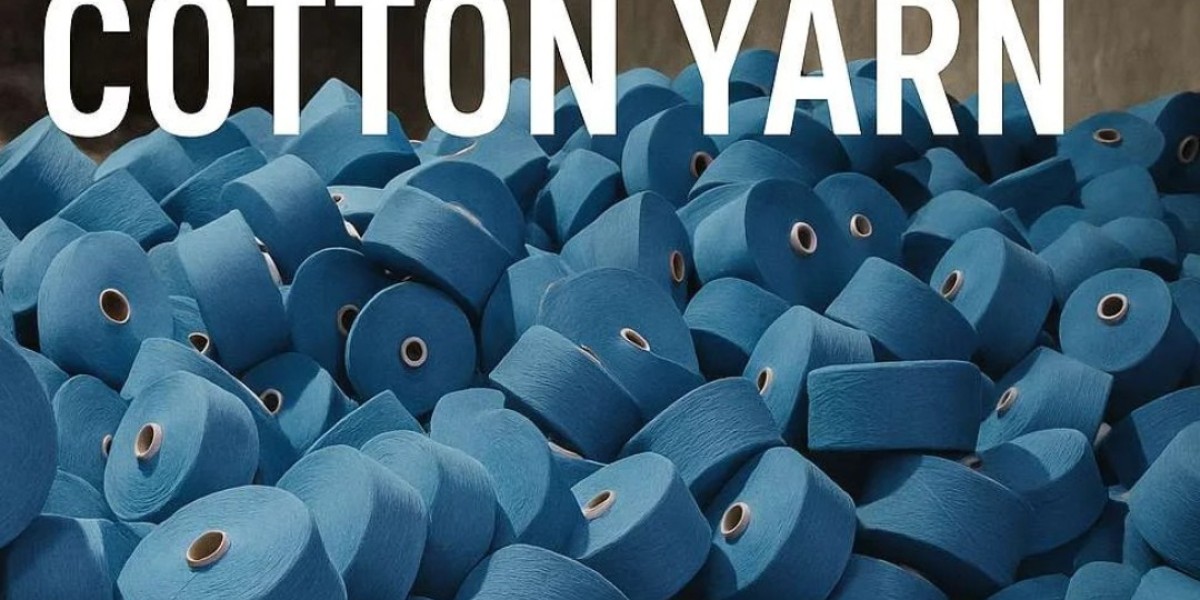Panipat, often known as the “Textile City of India,” is making waves in the global textile industry — not just for traditional products like durries and blankets, but for something far more sustainable: Recycled Yarn, especially Recycled Cotton Yarn. Over the last decade, this industrial town in Haryana has steadily emerged as a leading center for recycled yarn production, helping India play a vital role in circular fashion and sustainable textile practices.
In this article, we explore the reasons why Panipat has become a powerhouse for Recycled Cotton Yarn Manufacturers and how it is positioning itself as a preferred destination for global buyers looking for eco-friendly textile solutions.
? The Rise of Recycled Cotton Yarn in Panipat
What Is Recycled Cotton Yarn?
Recycled Cotton Yarn is produced by collecting post-consumer or post-industrial cotton waste — like used garments, offcuts, or production leftovers — and processing it into usable yarn. This reduces the demand for virgin cotton, saving water, land, and chemicals involved in cotton farming. It also minimizes textile waste, supporting a circular economy.
? Why Panipat? Key Factors Behind Its Rise
1. Historical Strength in Textile Recycling
Panipat’s involvement in textile recycling dates back decades. The city was once a major center for manufacturing woolen blankets from used clothes imported from Western countries. This legacy built a foundation for the expertise and infrastructure needed for modern recycled yarn production.
Today, Panipat continues this tradition with a modern twist — by becoming one of the biggest Recycled Cotton Yarn Suppliers in India.
2. Access to Raw Material
One of Panipat’s biggest advantages is the abundant availability of cotton waste from textile hubs across India and abroad. The city imports used cotton garments in bulk and sources factory offcuts from states like Gujarat, Tamil Nadu, and Maharashtra. This steady supply chain fuels its recycling ecosystem.
3. Cost-Effective Manufacturing Ecosystem
Panipat’s manufacturing infrastructure is highly optimized for low-cost production. With thousands of small and medium-sized recycling units, spinning mills, and dyeing houses, the city offers efficient processes that help produce recycled cotton yarn at competitive rates — a major factor for brands looking to balance sustainability and budget.
? Global Demand Driving Growth
4. International Buyers Seek Sustainable Alternatives
With brands and fashion labels under pressure to reduce their carbon footprints, many are switching to recycled cotton yarn for their collections. Panipat’s manufacturers have quickly aligned with global trends, offering GRS-certified (Global Recycled Standard) yarns that meet international sustainability standards.
Major buyers from Europe, the US, and the Middle East now source yarn from Panipat, drawn by the high-quality output and environmentally responsible production.
5. Supportive Export Policies
Panipat benefits from proximity to key logistics hubs — including the Delhi NCR region and the Inland Container Depot at Sonipat — making exports smoother. With support from government initiatives like Make in India and RAMP (Raising and Accelerating MSME Performance), Panipat-based businesses are able to upgrade technology and expand globally.
? What Makes Panipat Recycled Cotton Yarn Special?
Available in multiple counts and blends (e.g., 6s to 30s, cotton-polyester)
Diverse applications: used in knitting, weaving, home furnishing, and denim
Eco-certifications: Many Panipat suppliers offer OEKO-TEX, GRS, and ISO standards
Color options: Pre-dyed recycled yarn is available, eliminating the need for chemical dyeing
? Leading Recycled Cotton Yarn Manufacturers in Panipat
Many Recycled Cotton Yarn Manufacturers in Panipat are now leveraging digital channels and sustainability credentials to connect with international clients. These businesses typically offer:
Free yarn samples for testing
Custom blend and color options
MOQ flexibility for startups and bulk buyers alike
Whether you're a wholesaler, brand owner, or startup, Panipat offers a range of manufacturers who combine affordability with quality assurance.
? Contribution to Circular Fashion Economy
The production of recycled cotton yarn in Panipat is more than just a business — it’s a movement toward circularity. The city plays a critical role in reducing textile waste that would otherwise end up in landfills. Through its recycling processes, Panipat contributes to:
Saving thousands of liters of water per kilogram of yarn
Reducing dependency on virgin cotton cultivation
Offering livelihood to thousands of skilled and unskilled workers
? Future Outlook: Panipat’s Sustainable Growth
The demand for recycled cotton yarn is expected to grow exponentially in the coming years, and Panipat is well-poised to meet this demand.
Key growth indicators:
Investments in advanced spinning and carding technologies
Training programs for skill development
Expansion of export networks through B2B platforms and trade shows
Emergence of tech-enabled Recycled Cotton Yarn Suppliers providing better quality control and tracking
Panipat’s journey is a testament to how sustainability and economic growth can go hand in hand, especially when local industries adapt to global needs.
? Final Thoughts
Panipat is not just a city of looms anymore — it’s becoming a global leader in Recycled Cotton Yarn production. From its rich heritage in textile recycling to its modern, export-oriented infrastructure, the city offers unmatched potential for eco-friendly textile solutions.
If you're a brand or manufacturer looking to reduce your environmental impact without compromising on quality, exploring Recycled Cotton Yarn Suppliers from Panipat could be your smartest move.








